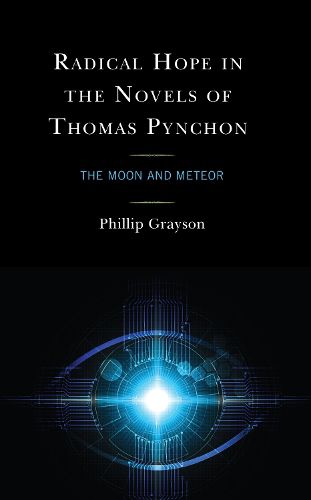Readings Newsletter
Become a Readings Member to make your shopping experience even easier.
Sign in or sign up for free!
You’re not far away from qualifying for FREE standard shipping within Australia
You’ve qualified for FREE standard shipping within Australia
The cart is loading…






Radical Hope in the Novels of Thomas Pynchon: The Moon and Meteor provides a careful consideration of the author’s career, examining the ways in which the subversion of his early novels feeds into the radical optimism of his later works. The book’s first half explores the author’s use of the image of the Moon as a romanticized ideal that is irreparably corrupted by and corruptly manipulated by forces of worldly power. The second half takes up the meteor as an image of impending violence that has yet to be full realized, finding in the unlikely possibility of that violence being somehow averted, a reckless sort of hope. This foolhardy but nonetheless real hope to escape from violent, oppressive structures and forge a real ethical obligation to the other marks the development of these paired metaphors, and through them Pynchon introduces the possibility, however slight, that literature, with its powerfully intimate relationship with consciousness, may at least sustain that hope.
$9.00 standard shipping within Australia
FREE standard shipping within Australia for orders over $100.00
Express & International shipping calculated at checkout
Radical Hope in the Novels of Thomas Pynchon: The Moon and Meteor provides a careful consideration of the author’s career, examining the ways in which the subversion of his early novels feeds into the radical optimism of his later works. The book’s first half explores the author’s use of the image of the Moon as a romanticized ideal that is irreparably corrupted by and corruptly manipulated by forces of worldly power. The second half takes up the meteor as an image of impending violence that has yet to be full realized, finding in the unlikely possibility of that violence being somehow averted, a reckless sort of hope. This foolhardy but nonetheless real hope to escape from violent, oppressive structures and forge a real ethical obligation to the other marks the development of these paired metaphors, and through them Pynchon introduces the possibility, however slight, that literature, with its powerfully intimate relationship with consciousness, may at least sustain that hope.